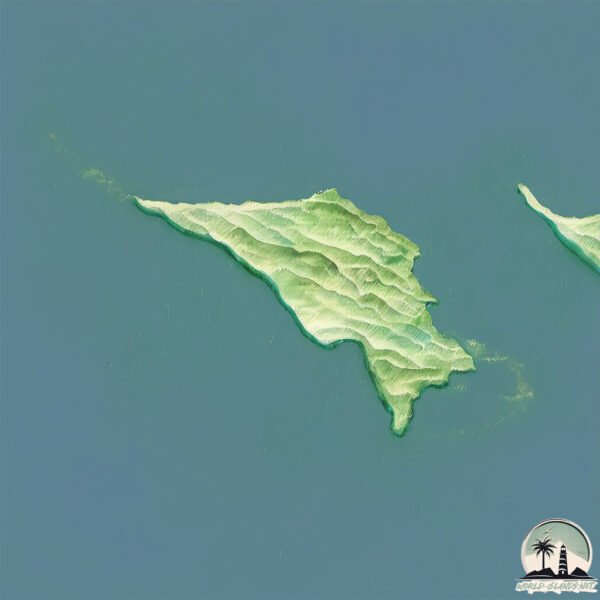Helgoland

Welcome to Helgoland, a Temperate island in the North Sea, part of the majestic Atlantic Ocean. This guide offers a comprehensive overview of what makes Helgoland unique – from its geography and climate to its population, infrastructure, and beyond. Dive into the details:
- Geography and Size: Explore the island’s size and location.
- Climate and Weather: Weather patterns and temperature.
- Topography and Nature: Uncover the natural wonders of the island.
- Infrastructure and Travelling: Insights on reaching, staying, and making the most of your visit.
- News and Headlines: Latest News.
Geography and size of Helgoland
Size: 1.106 km²
Coastline: 7.8 km
Ocean: Atlantic Ocean
Sea: North Sea
Continent: Europe
Helgoland is a Small Island spanning 1.1 km² with a coastline of 7.8 km.
Archipel: –
Tectonic Plate: Eurasia – One of the world’s largest tectonic plates, the Eurasian Plate covers a significant portion of Europe and Asia. It’s characterized by diverse geological features, including the Ural Mountains, the European Plain, and the Himalayas formed from its collision with the Indian Plate.
The geographic heart of the island is pinpointed at these coordinates:
Latitude: 54.18247955 / Longitude: 7.88402995
Climate and weather of Helgoland
Climate Zone: Temperate
Climate Details: Temperate Oceanic Climate
Temperature: Warm Summer
Climate Characteristics: Known for its moderate year-round temperatures with ample rainfall and no dry season. Warm summers are characteristic.
Topography and nature of Helgoland
Timezone: UTC+01:00
Timezone places: Europe/Paris
Max. Elevation: 12 m
Mean Elevation: 9 m
Vegetation: Evergreen Needleleaf Forest
Tree Coverage: 2%
The mean elevation is 9 m. The highest elevation on the island reaches approximately 12 meters above sea level. The island is characterized by Plains: Flat, low-lying lands characterized by a maximum elevation of up to 200 meters. On islands, plains are typically coastal lowlands or central flat areas.
Dominating Vegetation: Evergreen Needleleaf Forest
Dominated by evergreen coniferous trees such as pines and firs, which retain their needle-like leaves throughout the year. These forests are often found in cooler climates. Helgoland has a tree cover of 2 %.
Vegetation: 3 vegetation zones – Moderately Diverse Island
These islands start to show a broader range of ecological niches. With three vegetation zones, they may offer a mix of ecosystems like coastal areas, inland woods, and perhaps a distinct wetland or dry area. This diversity supports a wider range of flora and fauna, making these islands more ecologically complex than those with minimal diversity.
Infrastructure and Travelling to Helgoland
Does the island have a public airport? no.
There is no public and scheduled airport on Helgoland. The nearest airport is Helgoland-Düne Airport, located 3 km away.
Does the island have a major port? no.
There are no major ports on Helgoland. The closest major port is WILHELMSHAVEN, approximately 77 km away.
The mean population of Helgoland is 576 per km². Helgoland is Densely Populated. The island belongs to Germany.
Continuing your journey, Insel Spiekeroog is the next notable island, situated merely km away.
The forgotten island Britain lost to Germany | Inside Heligoland



Germany is classified as Developed region: G7: Group of Seven – Major advanced economies, including Canada, France, Germany, Italy, Japan, the United Kingdom, and the United States. The level of income is High income: OECD.
News – Latest Updates and Headlines from Helgoland
Stay informed with the most recent news and important headlines from Helgoland. Here’s a roundup of the latest developments.
Please note: The data used here has been primarily extracted from satellite readings. Deviations from exact values may occur, particularly regarding the height of elevations and population density. Land area and coastline measurements refer to average values at mean high tide.
